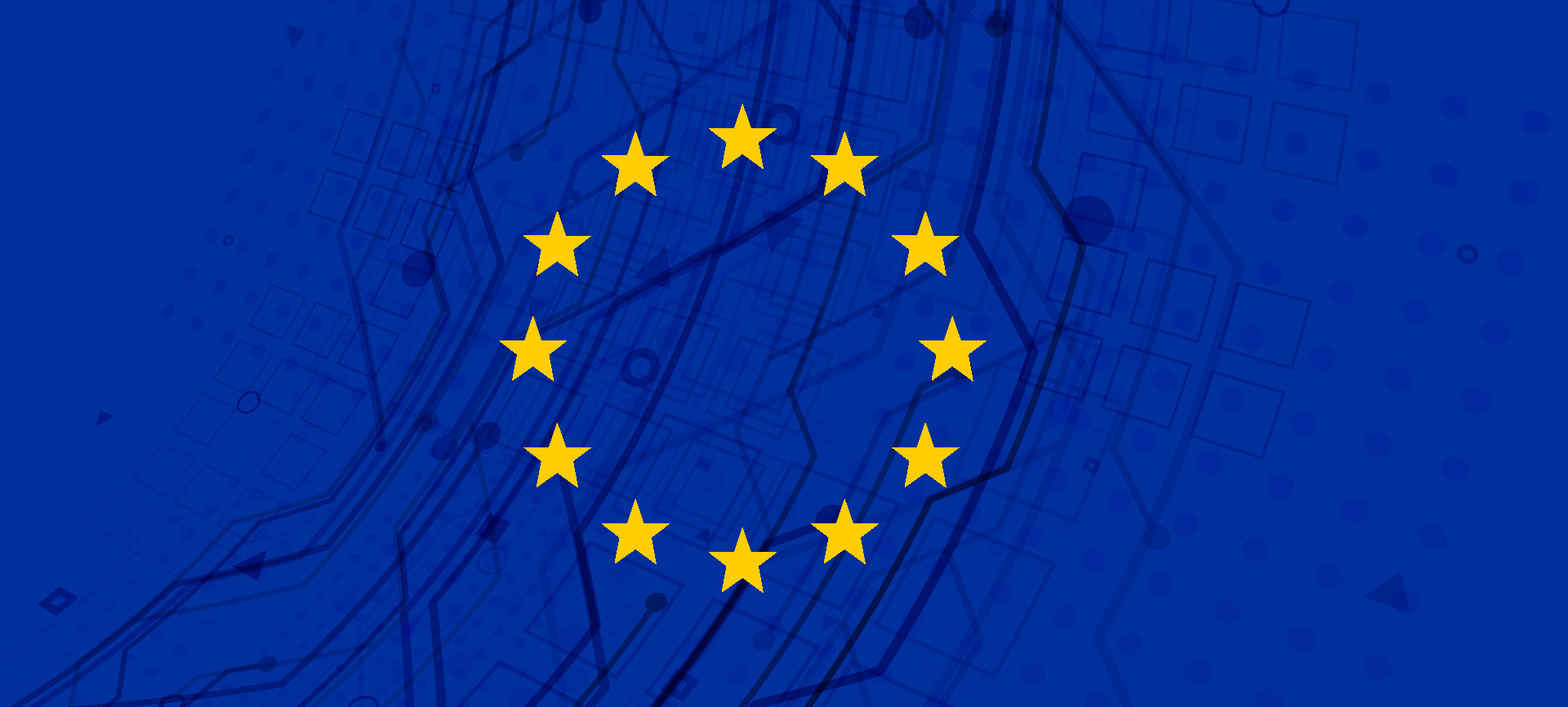
The EU’s Innovation Union and the Global Trade Environment + Trade, Innovation and SMEs

The EU Centre's projects on trade support greater understanding of the nature of contemporary global trade. They engage key stakeholders from policy agencies, business and civil society to examine varying perspectives on trade and the implications of measures which lead to a more open trading environment between the partners. These projects are supported by the Erasmus+ Programme of the European Union.

In 2010, the European Union (EU) committed to building the ‘Innovation Union’. This initiative responded to the economic challenges which the EU faced in the wake of the Global Financial Crisis, and the recognition that the EU was trailing others (specifically the United States and Japan) in its innovation performance. In short, Europe’s scientific expertise was not linked closely enough with industry and the enhancement of economic competitiveness. Horizon 2020, launched in 2014, has provided the largest public fund supporting research and innovation in the world, structured in such a way as to promote collaboration between scientific and industrial organisations.
The effectiveness of the development of the Innovation Union depends on the openness of global trade. The EU’s approach is reflected in its key statement on trade in 2015, Trade for All. The fundamental elements of the Innovation Union rely on increasing both Member State and EU support for scientific endeavour, but also ensuring that it is closely linked with industry and processes of commercialisation. Ultimately, competitiveness depends on access to global markets, and hence the importance of new agreements that reduce both the costs and regulatory barriers to trade. EU research demonstrates that this contributes, in turn, to higher employment and wages leading to enhanced social prosperity (a key objective of the Europe 2020 Strategy).
However, the nature of contemporary global trade is poorly understood, both by citizens throughout North America, Europe and Australasia, and by their political representatives. The interconnectedness of global value chains, and the extent to which components move around the world before becoming goods ready for market, means that there are many barriers to open trade other than tariffs. As a ‘knowledge economy’ becomes increasingly central to people’s well-being, services become as important a part of global trade as goods. The EU’s policies with respect to the ‘Innovation Union’ and to opening up global trade reflect a very positive approach to these issues.
Objectives
The purpose of this project is to promote improved public understanding of the relationship between innovation and competitiveness and a more open global trading environment, and how this improves prosperity for the EU and its global partners. Its specific objectives are to strengthen EU studies in this field by:
These objectives will be pursued with specific reference to the efforts to achieve free trade agreements between the EU and Australia, and the EU and New Zealand.
Outcomes
The principal outcomes from the project will be increased accessibility for both stakeholders and citizens to information about the emerging characteristics of regional, national and global economies, and the opportunities which can follow from more open global trade. Its impact will be reflected in more knowledgeable debate in all forums about the prospects for more open global trade.
In 2015, the EU released a new trade policy, Trade for All. The new policy was partly aimed at enabling trade to be more effective in delivering economic opportunities, but also being more transparent in opening up negotiations to more public scrutiny and addressing values as well as interests. The new policy sought to respond to increasing disquiet in civil society about the possible threat that more open trade arrangements might threaten jobs and living standards in Europe. It aimed to set new priorities for trade which ensured mutual benefits for all parties involved. Developing the Single European Market and bringing it to the world through trade has been a key objective of European integration for six decades, so Trade for All is a key initiative in strengthening civil society support for this key objective.
This project will contribute to the implementation of the new policy, specifically in relation to the proposed trade negotiations with Australia and New Zealand. The project engages key stakeholders from policy agencies, business and civil society to examine varying perspectives on trade and the implications of measures which lead to a more open trading environment between the partners.
In particular, the project engages with Small and Medium Enterprise (SME) stakeholders. This priority reflects the EU’s analysis of the sectors most likely to benefit from more open trade arrangements. Their evidence is that SMEs which export to at least one other country are more likely to demonstrate positive growth in employment, and to pay higher wages. This project will test these assumptions in Australia, particularly in the context where Australian Government policy is emphasising the importance of innovation, and facilitating SME access to global markets. The crucial question is how EU and Australian SMEs can benefit most from more open trade, and whether these benefits will contribute to enhanced quality of life for civil society.
Objectives
The purpose of this project is to promote improved policy knowledge and engaged civil society awareness of the prospective implications of a more open global trading environment, especially for SMEs in Australia and the EU. It will strengthen EU studies in this field by:
Outcomes
The principal outcomes from the project will be to support policy development and the inclusion of clauses in the EU-Australia, and possibly EU-New Zealand, trade negotiations which improve opportunities for SMEs in a manner that encourages SME and civil society support. Stakeholders will have improved knowledge on the role which SMEs play in global trade, particularly those committed to innovative processes, and how more open trade can enhance this role.
Trade, Innovation and SME Policy Briefs:
Negotiations and Agreements:
Strategic Plan 2016-2020:
Commission reports on trade negotiations with Australia, New Zealand and Indonesia:
EU trade policy:
EU trade legislation:
EU-Australia Trade Agreement:
EU- Australia Trade Agreement negotiations:
Report of the 2nd round of negotiations for a Free Trade Agreement between the European Union and Australia – 19-23 November 2018, Canberra
EU-Australia Trade Agreement:
UK decision to leave the EU-Brexit:
Australia- EU FTA:
Small business sector contribution to the Australian economy
Financing innovative entrepreneurship
Australian Innovation System Report 2015
Business performance of Enterprise Connect participant
Industry Growth Centres Initiative
Small And Medium Enterprise SME) Finance
Counts of Australian Businesses, including Entries and Exists, June 2015- Jun
Summary of IT and Innovation in Selected Growth Sectors, Australia, 2013-14
Summary of IT use and Innovation in Selected Growth Sectors, Australia, 2013-14
Competitiveness and Innovation Framework Programme (CIP)
Small and medium-sized enterprises
Report on Supporting Australian SME exporters to go global
2018 Trade Policy Recommendations: Increasing SME participation in international trade
Enterprise Europe Network presents SME Growth Outlook for 2019-20
Innovation and internationalisation: A competitive advantage for small and medium-sized enterprises
Small, Medium, Strong. Trends in SME Performance and Business Conditions
Promoting innovation in established SMEs: Parallel session 4

2 April 2019, 4:30pm-5:30pm
RMIT City Campus
Courtroom 3, Building 20, Level 2
124 La Trobe St, Melbourne
Speaker
Prof. Bruce Wilson, Director of the EU Centre at RMIT University in cooperation with the Contemporary European Studies Association of Australia (CESAA).

22 March 2019, 12:30-2:00pm
RMIT City Campus
Building 80, Level 11, Room 10
445 Swanston Street Melbourne
Speaker
Dr Gabriele Suder, Director, International CEO Forum
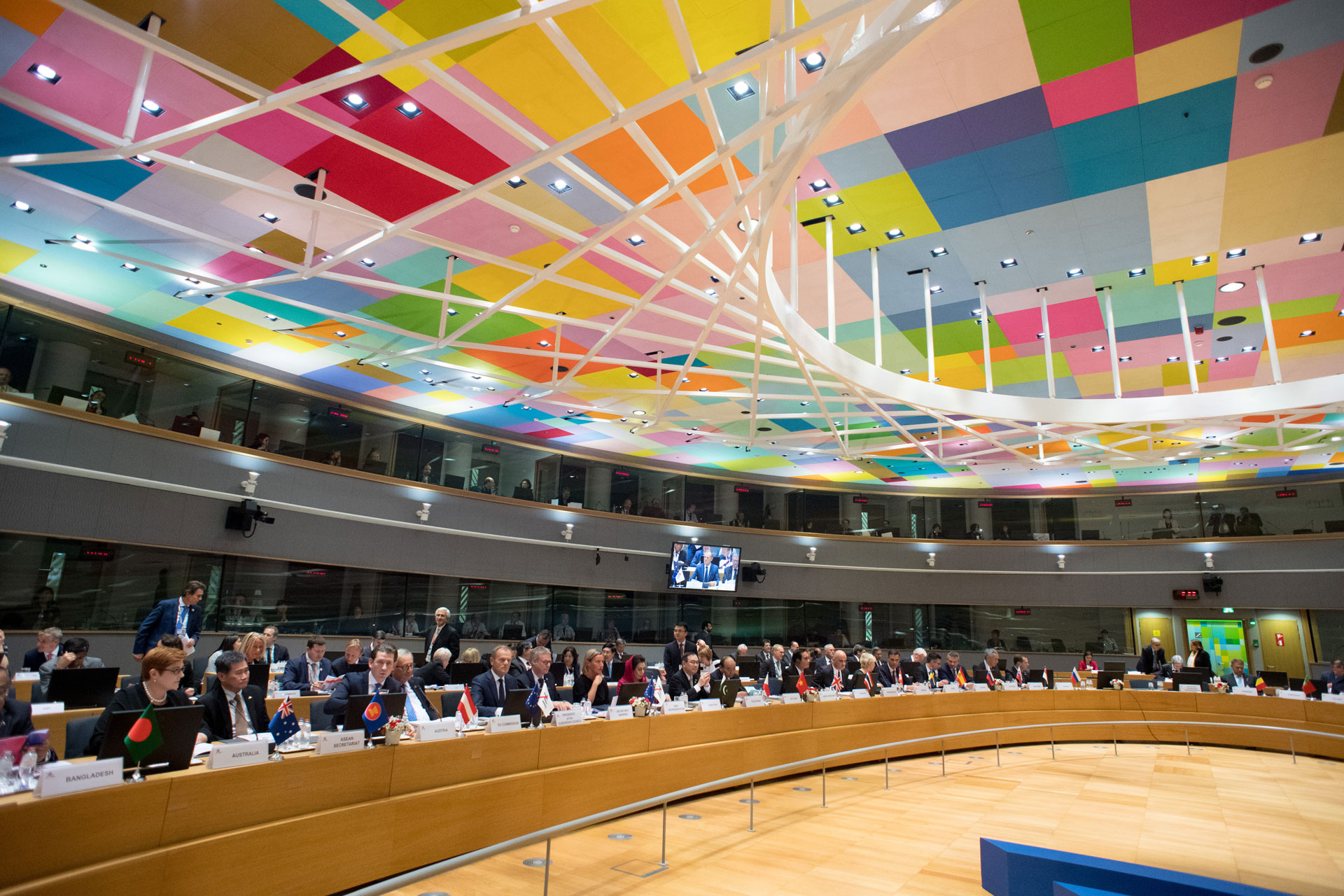
19 Feb 2019, 12:30- 2:00pm
RMIT City Campus
Council Chamber Building 1, Level 2R
124 La Trobe St, Melbourne

11 Feb 2019, 5:30- 8:00pm
RMIT City Campus
Building 80, Level 2, Room 2
445 Swanston St, Melbourne
Speakers
Erich Prem, eutema GmbH, EPIC coordinator
Maarten de Rijke, University of Amsterdam
Nicholas Nicoloudis, SAP, Brain Games
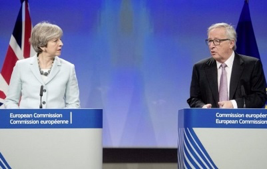
4 Feb 2019, 12:30-2:00pm
RMIT City Campus
Council Chamber Building 1, Level 2R 124
La Trobe Street, Melbourne
Speaker
Prof. Richard G Whitman, Director of the Global Europe Centre of Politics & International Relations at the University of Kent.
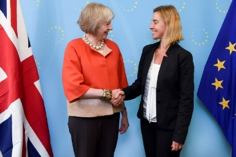
21 Jan 2019, 15:30-17:00pm
Immigration Museum
400 Flinders Street
Melbourne
Speaker
Dr Gabriele Suder, Director, International CEO Forum
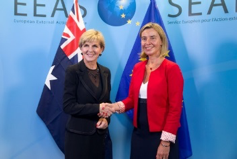
21 Jan 2019, 15:30-17:00pm
Immigration Museum
400 Flinders Street
Melbourne
Speakers
Paul O’Hagan, General Manager for Victoria, South Australia and Western Australia, Australian British Chamber of Commerce (ABCC)
Dr. Ben Wellings, Senior Lecturer, European Studies, Monash University

26 Nov 2018, 12:30-2:00pm
RMIT City Campus
Building 16, 336-348 Swanston street
Melbourne
Speakers
Dr Tom Gerald Daly
Dr Sophie Di Francesco-Mayot

17 Oct 2018, 12:30-2:00pm
RMIT City Campus
Building 80, Level 5, Lecture Theatre 12
445 Swanston Street, Melbourne
Speaker
Erich Prem, eutema GmbH, EPIC coordinator
The European Commission's support for the production of this publication does not constitute an endorsement of the contents, which reflect the views only of the authors, and the Commission cannot be held responsible for any use which may be made of the information contained therein.


RMIT University acknowledges the people of the Woi wurrung and Boon wurrung language groups of the eastern Kulin Nation on whose unceded lands we conduct the business of the University. RMIT University respectfully acknowledges their Ancestors and Elders, past and present. RMIT also acknowledges the Traditional Custodians and their Ancestors of the lands and waters across Australia where we conduct our business - Artwork 'Sentient' by Hollie Johnson, Gunaikurnai and Monero Ngarigo.
Learn more about our commitment to Indigenous cultures